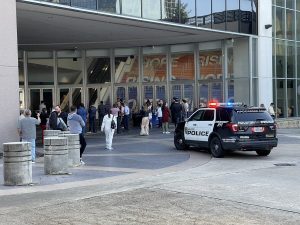Pope Francis said Wednesday that Catholic bishops must minister to politicians who back abortion with “compassion and tenderness,” not condemnation, and warned that they shouldn’t let politics enter into questions about receiving Communion.
Francis was asked en route home from Slovakia about the debate in the U.S. church about whether President Joe Biden and other politicians should be denied Communion because of their stances on abortion. U.S. bishops have agreed to draft a “teaching document” that many of them hope will rebuke Catholic politicians, including Biden, for receiving Communion despite their support for abortion rights.
Also Read | Pope urges Hungary to open its arms to everyone
Francis declined to give a “yes” or “no” answer, saying he didn’t know the U.S. case well enough. He repeated that abortion was “homicide,” and that Catholic priests cannot give the Eucharist to someone who is not in communion with the church. He cited the case of a Jew, or someone who isn’t baptized or who has fallen away from the church.
Most importantly, he said, was that priests and bishops must respond pastorally and not politically to any problem that comes before them. He said they must use “the style of God” to accompany the faithful with “closeness, compassion and tenderness.”
Also Read | Protect those seeking new life: Pope Francis prays for Afghans to find refuge
“And what should pastors do? Be pastors, and not go condemning, condemning,” Francis said.
Francis recalled cases when the church had held fast to a principle on political grounds and it ended badly, citing the Inquisition-era condemnation of Giordano Bruno for alleged heresy. He was burned at the stake in Rome’s Campo dei Fiori.
“Whenever the church, in order to defend a principle, didn’t do it pastorally, it has taken political sides,” Francis said. “If a pastor leaves the pastorality of the church, he immediately becomes a politician.”
Also Read | Could Texas abortion ban have a boomerang effect on Republicans?
Francis said he had never denied Communion to anyone, though he said he never knowingly had a pro-abortion politician before him. And he admitted he once gave Communion to an elderly woman who, after the fact, confessed that she was Jewish.
U.S. bishops agreed in June that the conference doctrine committee will draft a statement on the meaning of Communion in the life of the church that will be submitted for consideration, probably an in-person gathering in November. To be formally adopted, the document would need support of two-thirds of the bishops.






